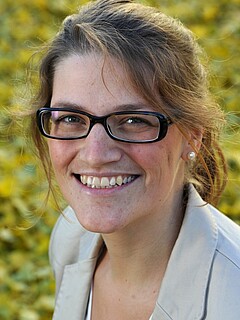PhD students 1st cohort

Dr. Mirjam Hanna Sauer
Curriculum Vitae
Dr. Mirjam Sauer (born 1985) studied evangelical theology at the Augustana Hochschule in Neuendettelsau from 2004 to 2006. From 2006 to 2007 she completed an intern year in the Lutheran Community in Belém, Brazil. From 2007 to 2012 she continued her theology studies at LMU Munich and the University of Heidelberg and qualified in social welfare studies at the Institute of Social Welfare Studies in Heidelberg between 2009 and 2010. During her studies she was employed as a working student in the Women’s Equal Opportunity Office in the Evangelical-Lutheran Church in Bavaria (ELKB). From 2009 to 2012 she received a scholarship from the Elisabeth Krauß scholarship foundation of the ELKB. From 2012 to 2015 Mirjam Sauer worked as a research assistant to the chair of systematic theology at FSU Jena. The focus of her teaching was running events on Schleiermacher and theological anthropology. In academic self-government she was employed as a representative of the speaker for the non-professorial teaching staff on the board of the Faculty of Theology from 2013 to 2015. She has been an associate member in the Centre for Religious Education Research at FSU Jena since November 2012. Since December 2013 Mirjam Sauer has been a member of the steering committee for the study ‘Theology of the Diaspora’ conducted by the Community of Evangelical Churches in Europe (GEKE). She was a PhD student at the ‘Romanticism as a Model’ research training group from October 2015 through September 2018. In July 2018 she was awarded her degree cum laudae. Since October 2018, Dr. Sauer is scientific staff at the Institute of Systematic Theology and Ethics at Justus Liebig University in Gießen.
PhD project (finished)
Theory as Praxis: The educational Concept of Early Schleiermacher (1796-1802)
In the now fragile fabric between humans and the environment, Friedrich Daniel Ernst Schleiermacher developed a theory of education at the end of the 18th century in which individuality and religion play a leading role. Education is understood by Schleiermacher to be a construction, a consciousness and perception of a structure of communication between differentiation and unity, in which the individual is considered a specific expression of a totality. Thus Schleiermacher’s theory of education can be considered a response to the disruptive, underlying tension between individuality and society.
Sources for the research are Schleiermacher’s ‘Discourses on Religion’ (1799) and the ‘Monologues’ (1800) and his sermons and letters from the period 1796 to 1802. A common feature of these texts is their communicative character, which results from their literary form. In the examination of these implicitly and explicitly communicative text types, it is asked how educational theory is developed, to what extent an educational programme is practically implemented and how the relationship between theory and practice can be determined. Theoretical considerations of models frame the work and create a context between the theory of education developed by Schleiermacher as praxis and Romanticism as a model of knowledge.
The work contributes to the systematic and theological investigation of Schleiermacher’s theory of education, which will be illuminated against the backdrop of contemporary debate. It also places a methodological emphasis on the possibility of a systematic theological reception of sermons and letters, which will be developed in the discussion of methods native to history and literature studies. The application of model theory to the results of the analysis opens up opportunities for understanding Romanticism as a model of knowledge with contemporary relevance.
Publications
Aufsätze
‚Unendlichkeit erschreiben‘. Frühromantische Literatur zwischen Reduktion und Anreicherung christlicher Tradition, in: Daniel Cyranka/Diana Matut/Christian Soboth (Hg.): Finden und Erfinden – die Romantik und ihre Religionen 1790-1820, erscheint Würzburg 2019.
Kleinere Beiträge
(Zs. mit Marc Emmerich/Hendrick Heimböckel): Tagungsbericht: Funktionen der Einbildungskraft um 1800, Jena, 01.03.2018-02.03.2018, in: H-Soz-Kult, 18.06.2018
Rezension zu: Jan Gross: Pluralität als Herausforderung. Die Leuenberger Konkordie als Vermittlungsmodell reformatorischer Kirchen in Europa, Göttingen 2018, in: Materialdienst des Konfessionskundlichen Instituts Bensheim 5/2018, S. 101.